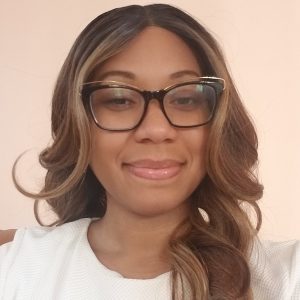
Criminal legal system agencies are reckoning with how they have contributed to racial and ethnic disparities and upheld structural racism – or the formal and informal policies and practices that systematically create preferences for some groups over others. In response, many agencies are implementing several reform strategies to reduce disparities and dismantle structural racism. However, these standard reform strategies use small-scale solutions and only incrementally reduce disparities or the reach of the criminal legal system on individuals and communities. Scholars, practitioners, and advocates recognize a need to, instead, use a transformative approach to dismantling racism in the criminal legal system. A transformative approach includes changing the race, gender, age, sexuality, disability status, and experiences of the individuals at the table making policy and practice decisions, building interventions and programs that are culturally representative of the legal system impacted people who will use them, and moving the goal from reducing recidivism to increasing well-being.
Recently selected as a participant for The Burns Institute’s 2023 James Bell Racial Justice and Structural Well-Being Training series, JSP Senior Associate Dr. Green believes taking this type of transformative approach is the approach for racial justice. “Advancing racial justice in the pursuit of equity is hard work,” said Dr. Green. “It requires deep critical introspective reflection, it requires us to challenge our current ways of thinking and being, it requires full and intentional commitment; it’s never-ending. But the journey itself is transformative – not only for yourself, but for those who are disproportionately impacted.”
The James Bell Racial Justice & Structural Well-Being series is an 8-month virtual training course kicking off January 27, 2023, providing multidisciplinary leaders with a strong commitment to racial justice a chance to help strengthen their leadership, facilitation skills, and advocacy in their work and communities. Dr. Green’s commitment to racial justice and equity started in her early childhood when she supported family members experiencing the criminal legal system and witnessed the deep impact of structural violence on Black people. These experiences shape her research, advocacy, community organizing with the goal to help the world to see Black people as full people — more than victims of circumstance and more than their ability to endure hardship, but as people worthy and deserving of humanity.
The series relies on the structural well-being framework that The Burns institute previously used in a community collaboration effort which saw positive impacts on community relationships and the implementation of more community, youth, and family well-being centered services in Toledo, Ohio and Ramsey County, Minnesota. The framework focuses on creating inclusive and culturally representative policies and practices within criminal legal systems.
Thrilled to be part of this training series, Dr. Green describes two goals for her experience with the institute. First, she plans to actively engage in the opportunity to collectively partner with others who are also supportive of the work to dismantle structural racism. She believes in the power of communities and learning from a diverse group of people. She recognizes the training series presents an opportunity to collaboratively build the infrastructure needed to dismantle structural systems of inequality. Dr. Green is also interested in gaining strategies to more effectively collaborate with individuals or organizations resistant to change. In her current work as JSP’s Senior Associate, she engages with those who have power to make change (e.g., public defenders, law enforcement, state’s attorneys, pretrial officers, judiciary, and jails), but may not see how their current policies and procedures perpetuate inequity for those directly impacted by the criminal legal system. Dr. Green hopes to gain the tools to better engage with system stakeholders who are skeptical and overwhelmed by how to move the needle to achieve equity.
Dr. Green hopes her participation in the Racial Justice & Structural Well Being training will provide her with the opportunity to learn how to curate and cultivate spaces to have critical conversations, “It’s time to challenge existing deficit-oriented ideologies, processes, and programs in the criminal legal system,” she says. “It’s time to build a strength-based approach which advances racial justice and equity.”
